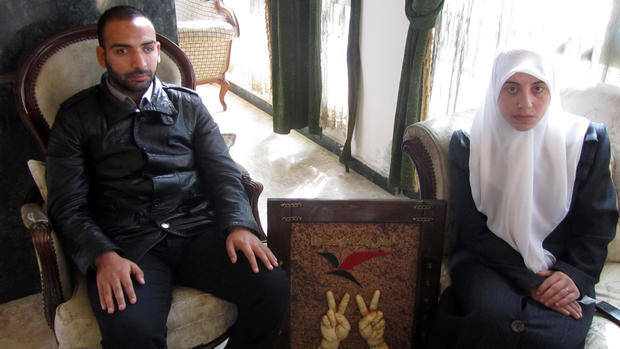Tag: Prisoner Swap
-
Photos: Gaza children hold march and candlelight vigil to free Ahmad Sa’adat
19th October 2013 | International Solidarity Movement, Gaza Team | Gaza, Occupied Palestine Dozens of Palestinian children marched in Gaza Friday evening before holding a candlelight vigil outside the Palestinian Legislative Council (PLC). The event was the first in a global week of action to free Ahmad Sa’adat and other Palestinian prisoners held by Israel. Sa’adat, an…
-
West Bank couple, deported to Gaza, recount difficult years in Israeli prison
by Joe Catron 30 January 2012 | The Electronic Intifada “This is the life of Palestinian people,” Obada Saed Bilal said one recent morning. “If I hadn’t been detained, I would have been wounded or martyred. I was in detention for over nine years, but I still resist. My marriage and university studies are my…
-
International Women’s Peace Service meet with prisoner released in Shalit deal
26 December 2011 | International Women’s Peace Service The 18th of December was a day of reunion and celebration for many in Palestine. Following a tense wait, several delays and tear-gas attacks by the Israeli Occupation Forces (IOF) on their waiting families, 550 Palestinian prisoners were released from Israeli jails to be reunited with their families…


